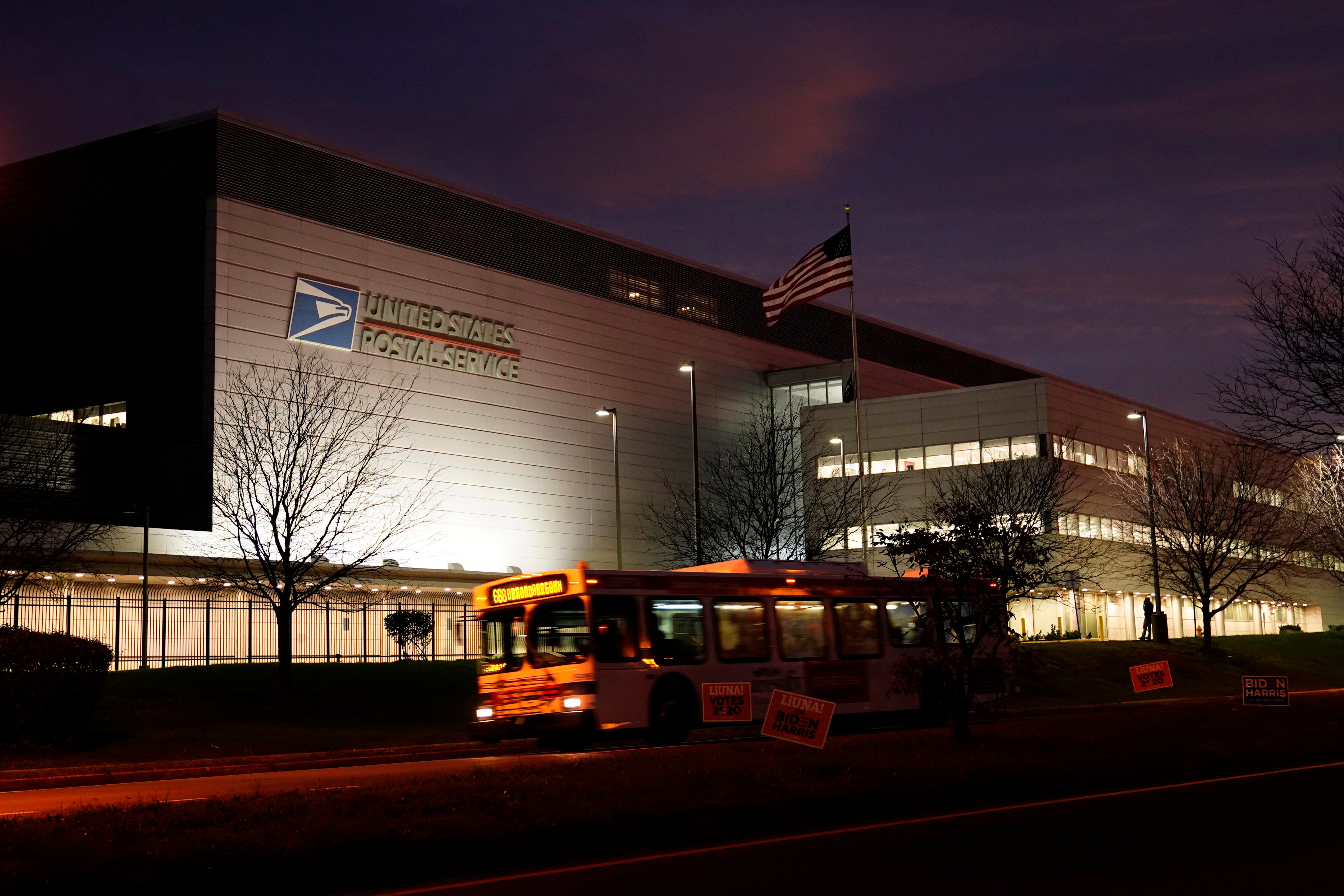EXPLAINER: Postal Service, judge at odds over ballot search
The U.S. Postal Service says it can’t meet a federal judge’s order to sweep processing centers for undelivered mail-in ballots

WHAT HAPPENED:
The U.S. Postal Service says it can't meet a federal judge’s order to sweep processing centers for undelivered mail-in ballots. It is arguing that doing so would be disruptive to its Election Day operations and that it had “physical and operational limitations.”
THE SIGNIFICANCE:
Disputes about mail ballots, particularly those received after Election Day, could be the fuel for court fights over election results in some states.
THE BACKGROUND:
U.S. District Judge Emmet G. Sullivan's order came after weeks of bruising court decisions for an agency that has become heavily politicized under its new leader, Postmaster General Louis DeJoy DeJoy, a major GOP donor, made a series of controversial policy changes in the summer that delayed mail nationwide, fueling worry about the service’s ability to handle the unprecedented crush of mail-in ballots.
At the same time, President Donald Trump has baselessly attacked mail voting as fraudulent throughout his campaign.
Much of Sullivan’s order hinged on postal data showing roughly 300,000 mail-in ballots in several states had not received scans showing they had been delivered. The agency has disputed the accuracy of the figure, saying it has pushed to ensure same-day local delivery of ballots by circumventing certain processing steps entirely, leaving them without the final delivery scan.
WHAT'S NEXT:
Sullivan had given the agency until Tuesday afternoon to search 27 facilities in several battleground areas for outstanding ballots and send out those votes immediately.
The Postal Service said it had already conducted rounds of morning checks at all its processing hubs. Further, the agency said has been performing daily reviews of all 220 facilities handling election mail and planned another sweep hours before polling places closed Tuesday.
The judge accepted the agency’s response but set a Wednesday hearing “to discuss the apparent lack of compliance with the court’s order.”
Bookmark popover
Removed from bookmarks